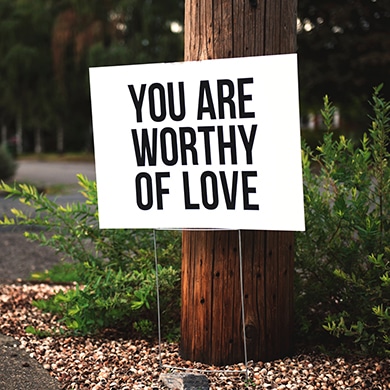

When people think about abusive relationships, they often imagine bruises, punches, and cuts. However, emotional abuse can be just as harmful to your well-being, even though it does not leave physical scars. If you've been emotionally abused, you'll know this only too well. Often, there are complex long-term effects of verbal and emotional abuse. These can influence everything from your self-confidence to how you approach new relationships in the future.
We'll look at some of the main effects of emotional abuse, helping you to identify them in your own life, and then we'll turn to explore the most effective ways to deal with the impact this abuse has had. Whether you suspect that you're in an abusive dynamic or you've left an abusive relationship and want to heal, this guide will help you understand yourself a little bit better and help you to formulate a plan for the future.
First, let's build up a picture of what emotional abuse looks like, and consider what constitutes emotional abuse.
There are many different signs, but some of the most common include the following:
All of these behaviors are designed to make you under confident and dependent on the abuser.
What does emotional abuse feel like? Effects of emotional abuse will vary according to your background, the nature of your relationship, and your particular vulnerabilities.
In addition, how you feel will partly depend on whether you're still embroiled in the abusive dynamic or are in the process of moving on. That said, there are certain key effects of emotional abuse from parents, partners, siblings, and friends that appear in almost all cases.
 1. Numbness
1. NumbnessYou may feel at a constant distance from the world; things that used to make you feel happy or sad may leave you feeling nothing at all. Relatedly, you might get the sense that your heart is under impenetrable guard, incapable of allowing you to feel close to anyone new.
Abusive relationships undermine your self-worth, so you find yourself having to solicit positive feedback from others in order to feel okay. At all times, you'll carry a sense of not being good enough. You'll likely also worry about annoying people all the time and are excessively focused on people-pleasing behaviors.
Of all the effects of emotional abuse on marriage, resentment is one of the longest lasting. You may feel angry at all the time, lose your temper easily, and feel like screaming. You might resent everyone from your abuser to yourself, and replay past events while fixating on how things “should” have been different.
The effects of emotional abuse on the brain include mental health issues like anxiety and depression, as your mind struggles to deal with the blows to your self-esteem. Symptoms of depression include trouble sleeping, fearfulness, discomfort in social situations, and a pervasive sense of hopelessness. Anxiety and depression can also manifest physically, causing appetite changes, sweating and a racing heart.
If you are ready to cut the negative energy cord in your life, move on and clear your own limiting beliefs, then you should definitely read Joe Vitale's new ebook, Clearing Negativity From Your Life: A Guide To Using The Ho'oponopono Method. As a featured teacher in ‘The Secret‘ movie, Joe Vitale has some AMAZING tips on how to break through to your best self (taking you to a high place of consciousness). You can get your free copy by clicking here now.
Recovering from the long-term effects of abusive relationships takes time, and it is rarely a linear process. However, healing is certainly possible.
Here are four steps you can take to begin your journey towards moving on, developing healthy relationships and recovering your self-esteem. You may find it helpful to engage in some form of therapy at the same time (or to discuss medication with your doctor if you're struggling with anxiety or depression).
 1. Understand The Abuser
1. Understand The AbuserIt’s possible to learn how to stop being emotionally abusive, but the person has to really want to do so. Understanding your abuser isn't about validating their behavior; it's about demystifying it, and seeing that it has a cause completely unrelated to your own personal worth. Think about where they learned these behaviors, and what purpose they're serving.
There are important practical aspects of learning how to deal with emotional abuse. In particular, remember that you have the right to chose whether to be in a relationship and the right to be treated with respect (even if you disagree with a partner). You also have the right to refuse sex at any time.
One of the realities about verbal and emotional abuse is that you’ll feel an urge to retaliate. Your abuser may push you to do so. However, you will suffer the consequences if you lower yourself to their level, so take a deep breath and try to remove yourself from the situation before you strike back.
You can influence how emotional abuse affects future relationships. Taking your power back is about walking away from the abusive dynamic, and making your own decisions about what you want your life to look like. This is easier with support, so speak out about what you've been through. There's no shame in being a victim of abuse.
